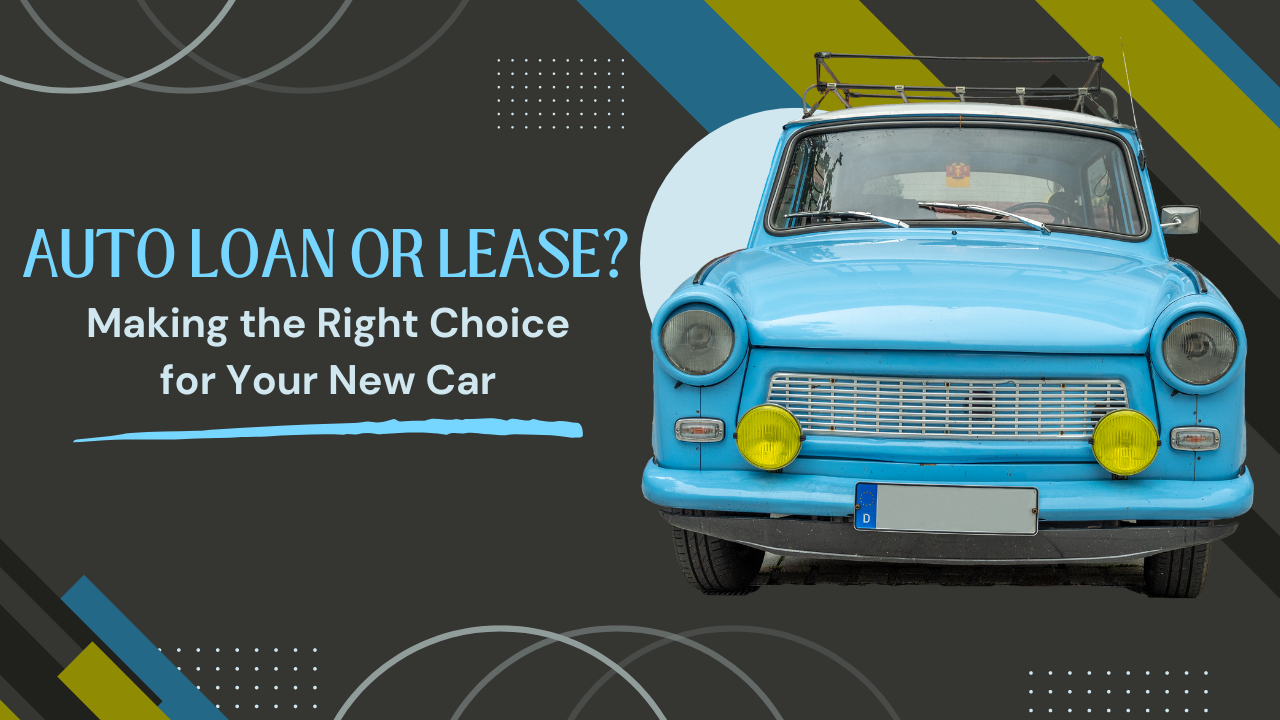As you embark on the exciting journey of acquiring a new car, one of the critical decisions you’ll face is whether to finance it with an auto loan or opt for a lease. Both options come with their own set of advantages and considerations, and making the right choice depends on your preferences, lifestyle, and financial goals. In this guide, we’ll explore the key factors to help you decide between an auto loan and a lease, ensuring that your choice aligns perfectly with your needs.

Ownership vs. Usage:
The fundamental difference between an auto loan and a lease lies in ownership. With an auto loan, you’re financing the purchase of the vehicle and, once the loan is repaid, you own the car outright. On the other hand, a lease is more like a long-term rental, providing you with the right to use the vehicle for a set period, typically 2-4 years, after which you have the option to return the car or purchase it.
Monthly Payments:
Auto loans and leases come with different payment structures. Auto loans generally involve higher monthly payments because you’re paying off the entire purchase price of the car, plus interest. In contrast, lease payments are usually lower as you’re only paying for the vehicle’s depreciation during the lease term. Consider your budget and monthly cash flow when deciding which payment structure suits your financial situation.
Long-Term vs. Short-Term Commitment:
Auto loans typically have longer terms, often ranging from 36 to 72 months or more. This results in a more extended commitment, but once the loan is paid off, you own the car free and clear. Leases, on the other hand, provide a shorter-term commitment, allowing you to upgrade to a new vehicle more frequently. Consider how long you intend to keep the car and your desire for regular upgrades when deciding between a loan and a lease.
Mileage Considerations:
Leases come with mileage restrictions, and exceeding the agreed-upon mileage limit can result in additional charges. If you have a long daily commute or frequently take road trips, an auto loan might be a better fit, as it doesn’t come with mileage restrictions. However, if you have a predictable and lower annual mileage, a lease could still be a viable option.
Customization and Wear and Tear:
Auto loans provide more flexibility for customization and personalization, as the car is yours to modify as you see fit. On the other hand, leases come with strict guidelines regarding modifications, and you may be charged for excessive wear and tear when returning the vehicle. Consider your desire for personalization and your ability to maintain the car in good condition when choosing between a loan and a lease.
End-of-Term Options:
At the end of an auto loan term, you own the car outright, and you can keep it for as long as you want without any further payments. With a lease, you typically have three options at the end of the term: purchase the car, lease a new one, or return the vehicle and explore other options. Assess your preferences and long-term goals to determine which end-of-term option aligns with your plans.
Deciding between an auto loan and a lease is a personal choice that depends on your lifestyle, financial preferences, and long-term goals. Consider factors such as ownership, monthly payments, commitment length, mileage considerations, customization options, and end-of-term choices. By evaluating these factors, you can make an informed decision that not only fits your current needs but also sets the stage for a satisfying and financially sound driving experience with your new car.
